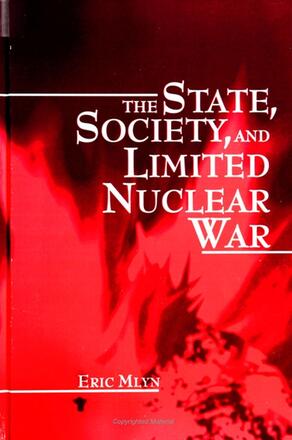
The State, Society, and Limited Nuclear War
Alternative formats available from:
This is an examination of the extent to which nuclear weapons policy has been democratically controlled, showing that a policy elite insulated from society eventually lost its autonomy.
Description
This book highlights the role that domestic politics has played in the evolution of U.S. nuclear weapons policy up to the present. Mlyn focuses on the relationship among the three levels of this policy: public statements, force posture, and nuclear targeting. He shows that although state officials since 1960 maintained a policy of Mutual Assured Destruction (MAD) in public, U. S. nuclear targeting in fact embraced Nuclear Utilization Theory (NUTS). Because this view of using nuclear weapons to fight a limited nuclear war was unpopular with the public, however, state officials did not articulate it fully until the early 1980s. Thus, although the Reagan administration was accused of radically changing nuclear weapons policy, it was actually continuing a long trend more openly.
Drawing on theories of the state, archives, and interviews with top defense policymakers, this book tells an important story of interest to any reader concerned with how security policy is fashioned in the United States.
Eric Mlyn is Assistant Professor of Political Science at the University of North Carolina at Chapel Hill.
Reviews
"Mlyn has put together a new line of argument about the origins and evolution of U.S. nuclear weapons policy. Most of the literature on nuclear weapons has ignored the role of Congress and has assumed away the role of broader social forces. Mlyn's 'statist lens' therefore provides some valuable new insights." — Scott Sagan, Stanford University
"A lucid, careful, and perceptive study of important questions about how Washington policymakers and forces in American society intersect and interact in the crucial area of nuclear weapons affairs. Mlyn throws light on a vital topic that is too little assessed: how and when nuclear policy is affected by the perceptions and intentions of American society." — Richard Smoke, Brown University